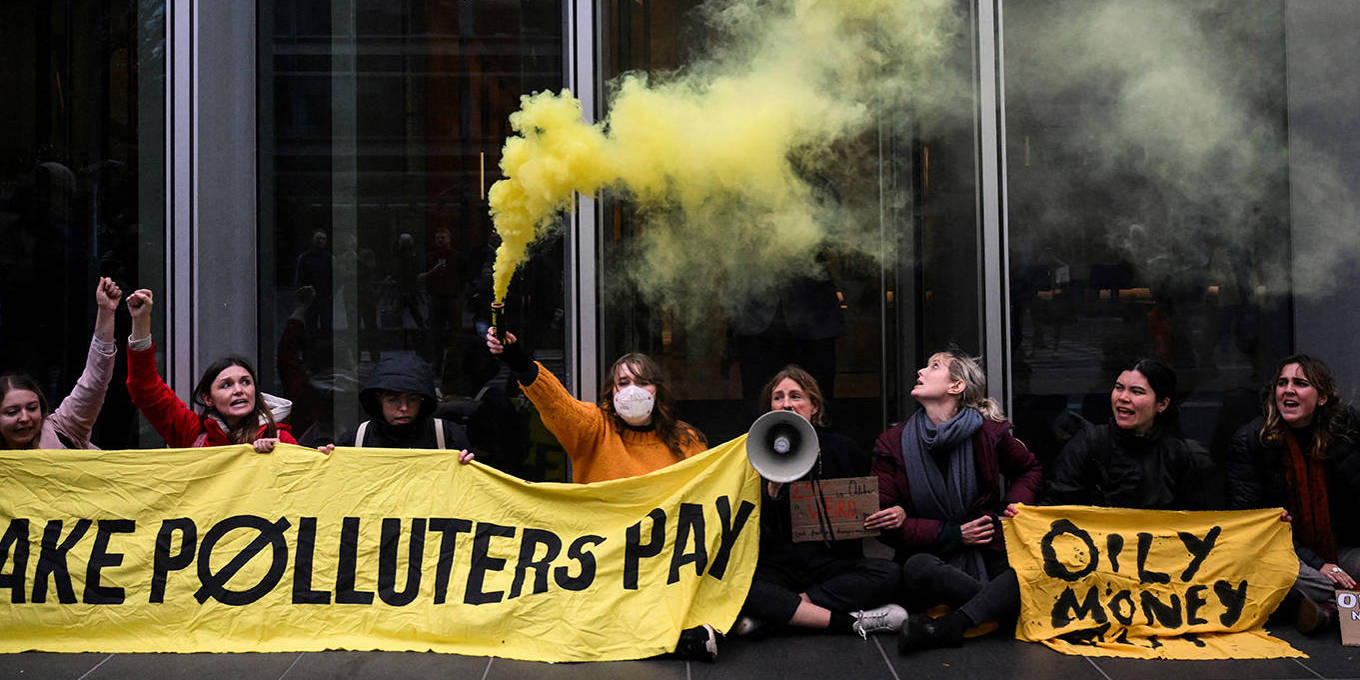Copyright Project Syndicate

CHICAGO – In a recent Financial Times commentary, US Securities and Exchange Commission Chairman Paul Atkins argued that, “the SEC should only require companies to supply information under the objective standard of whether a reasonable investor would regard it as important to an investment decision. Rules written for shareholders who seek to effect social change or have motives unrelated to maximizing the financial return on their investment fail this test – and fail investors.” At face value, Atkins’ statement seems unexceptional. But it leaves open a key question: What is material to a firm’s financial performance? Atkins suggests that disclosure should not be driven by “political fads or distorted objectives,” citing the European Union’s Corporate Sustainability Reporting Directive, which expands and standardizes corporate sustainability reporting to improve transparency and comparability of environmental, social, and governance (ESG) information. Such disclosures, he argues, “may be socially significant but are not generally financially material.” But this sounds like wishful thinking. If European regulators think the environment matters and they act on that belief, that materially affects multinational firms’ costs of doing business in Europe. Just last month, a Paris court found TotalEnergies had engaged in “misleading commercial practices” by claiming it was “a major actor in the energy transition.” Citing EU legislation that requires green claims to be supported by “objective, publicly available, and verifiable commitments and targets,” the court found the company’s climate pronouncements to be inconsistent with its expanded investments in hydrocarbons. While the fines Total has incurred are small, such fines are likely to be larger in the future – and thus material to investors. Obviously, US regulators today put little weight on companies’ green strategies or the need to disclose them. But if regulators elsewhere care more, such strategies are still material to firms that do business across borders. And since there is a deep divide in the United States between Democrats and Republicans on the merits of ESG policies, a company that avoids ESG-related actions during the current administration might find itself hamstrung in a future one. Shouldn’t investors who value long-run earnings be able to make their own judgments about these issues? Regardless of whether ESG is a political fad (or whether opposition to it is), disclosures of ESG-aligned practices may still be material to the bottom line. Nor are regulators the only ones who might care. In the TotalEnergies case, the concern was that customers will be misled by the company’s environmental pronouncements. In a warming world, it is reasonable to expect that some people’s purchasing decisions might well be swayed by a company’s environmental practices. Moreover, research suggests that Brazilian firms with better environmental practices (when certified by regulators) attract more skilled workers and ultimately perform better. Thus, whether environmental practices command universal political appeal is beside the point. If they attract a preferred kind of worker and enhance a firm’s bottom line, the company’s shareholders would want to know about it. Atkins does raise a potentially valid concern about the intended audience for corporate disclosures. He opposes rules “written for shareholders who seek to effect social change or have motives unrelated to maximizing the financial return on their investment.” But, again, what if some shareholders are willing to sacrifice returns for socially beneficial practices? Should their preferences be ignored? The argument for focusing solely on financial returns has always been that, by doing so, the firm empowers minority investors to go and spend their enhanced share of wealth on whatever social or political cause they prefer. The company does not need to cater to their whims to empower them. Yet Oliver Hart of Harvard and Luigi Zingales of the University of Chicago make a compelling argument that shareholders may prefer that the company act directly on their concerns. The shareholder-value argument suggests that a firm should continue to pollute the environment to maximize profits and its share price, because its environmentally conscious shareholders can then use some of their enhanced wealth to fund a clean-up. But the problem with this view should be obvious: Environmental remediation tends to be much more costly than preventing pollution in the first place, so shareholders and society alike would be better off if the firm sacrificed some profits to follow cleaner practices. Put differently, the SEC cannot simply dismiss socially motivated investors as a nuisance, because this cohort may form the majority in some firms, and their interests may not be served if the firm simply maximizes profits. In a world where investors are inundated with information, the SEC is right to ask what is and is not material. Mandatory SEC disclosures are valuable insofar as the information is more reliable than anything that is voluntarily disclosed. Since disclosure does impose a burden on firms, it should be mandated judiciously. But the SEC must recognize that a wide variety of interests look at such disclosures, and that their effects are material. To dismiss these concerns as political is to engage in politicization oneself. It is better to recognize that there are many channels through which disclosure can affect investors and society, and then make the necessary tradeoffs in SEC mandates.



